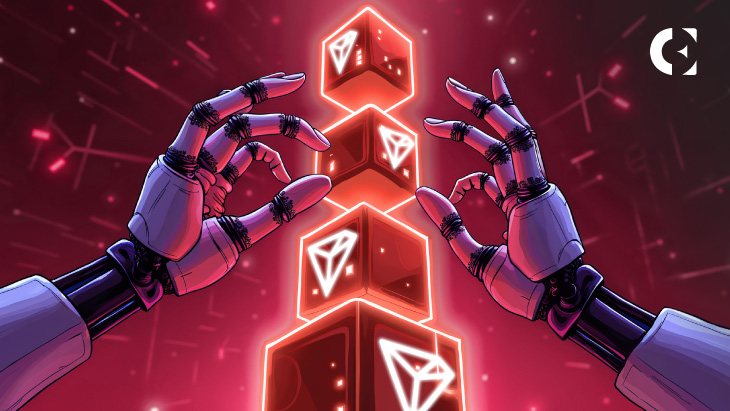- Tron Network achieves 99.7% block production efficiency, marking major stability gains.
- 68% of Tron Super Representatives replaced since 2020, boosting governance decentralization.
- P2P.org joins Tron as Super Representative, enhancing network reliability and performance.
The Tron Network has made great strides by attaining 99.7% efficiency in block production. The network’s advancement demonstrates its transformation into a stable, high-throughput, reliable blockchain in the industry. Tron’s technical performance stands out in decentralized blockchain systems, as the network generates new blocks consistently at three-second intervals.
According to CryptoQuant, this milestone marks the network’s operational maturity. The Tron Blockchain is just 12 blocks away from reaching its target of producing 28,800 blocks per day. Over the past few years, the network’s stability and uptime have improved significantly, in contrast to its technical hiccups in 2020 and 2021.
Governance Overhaul: 68% of Super Representatives Replaced
In addition to its technical improvements, Tron has also focused on enhancing its governance model. Network decentralization efforts have advanced by replacing 68% of super representatives (SRs) since 2020. Following Tron’s Delegated Proof-of-Stake (DPoS) framework, the Super Representatives execute vital network responsibilities by validating transactions and making governance decisions.
This overhaul responds to growing demands for better decentralization and community participation in blockchain governance. Tron strengthens its ecosystem by involving a broader range of participants and ensures power is more evenly distributed across its validator network. As a result, the network has seen an improvement in governance transparency and accountability, contributing to its long-term sustainability.
Implications for Developers and Institutional Participation
Tron’s technical and governance advances have made its blockchain an attractive option for developers who work on high-speed applications, including games and payment networks. Tron introduces a blockchain system that provides users with stability and scalability while overcoming the congestion problems that affect other blockchains like Ethereum and the uptime challenges experienced by Solana.
Additionally, recent developments in the network reflect its growing institutional appeal. Recently, P2P.org, which operates on over 40 blockchain infrastructures, has become one of Tron’s Super Representatives. This move indicates institutional players are getting more involved with the Tron ecosystem, which could lead to increased adoption, and network reliability will possibly follow.
Disclaimer: The information presented in this article is for informational and educational purposes only. The article does not constitute financial advice or advice of any kind. Coin Edition is not responsible for any losses incurred as a result of the utilization of content, products, or services mentioned. Readers are advised to exercise caution before taking any action related to the company.







